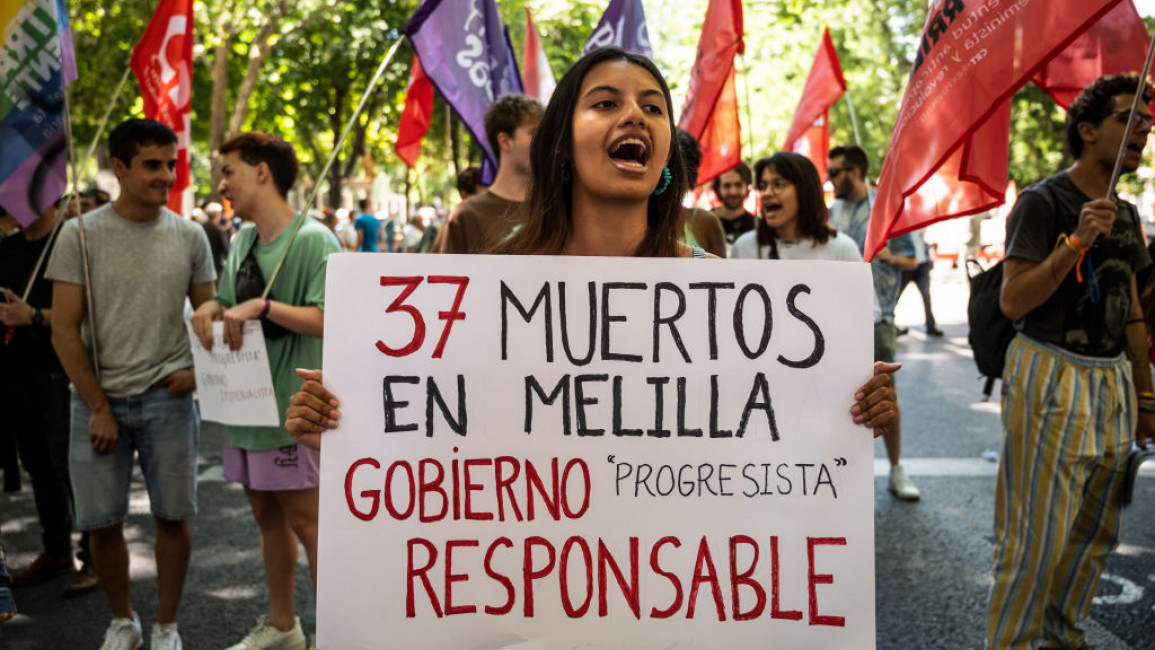Melilla migrants likely died of 'suffocation': Moroccan probe
At least 23 migrants who died last month in a mass attempt to enter the Spanish enclave of Melilla from Morocco likely "suffocated", Morocco's state-backed CNDH rights group said on Wednesday.
The death toll after around 2,000 people, many from Sudan, stormed the frontier on June 24 was the worst in years of attempted migrant crossings into Spain's Ceuta and Melilla enclaves, which have two of the EU's only land borders with Africa.
Adil El-Sehimi, a doctor who examined the bodies during a CNDH fact-finding mission, said the migrants had most likely died of "mechanical asphyxiation", when a force or object prevents a person from breathing.
CNDH chief Amina Bouayach said 23 migrants had died in the incident, confirming the official toll.
None of the dead have been buried and autopsies were pending, Bouayach told a press conference in Rabat to present the initial findings of the CNDH probe.
Spanish rights group Caminando Fronteras says as many as 37 people lost their lives.
Five days after the incident, Human Rights Watch (HRW) cited "reports that the authorities in Morocco may be organising hasty mass burials", along with photographic evidence of recently dug graves in nearby Nador.
The CNDH said large numbers of migrants, "armed with sticks and stones... split into two groups: the first stormed a border post closed since 2018 and the second climbed nearby walls topped with barbed wire".
It said that the dead had been crushed in part of a border post, where manual turnstiles allow the passage of a single person at a time.
"A large number of migrants found themselves crammed into this narrow area, resulting in jostling which led to migrants suffocating," it said.
The United Nations, the African Union and independent rights groups have denounced the use of excessive force by Moroccan and Spanish security personnel.
HRW said a video showed a Moroccan security agent "beating obviously injured men prone on the ground and another agent throwing a limp body onto a pile of people".
The CNDH defended Moroccan forces' actions, saying such cases were "isolated" and citing the danger posed by "the large number of migrants" carrying sticks and stones.
"Law enforcement did not use any firearms," it added.



